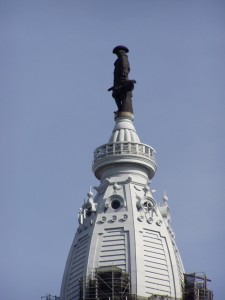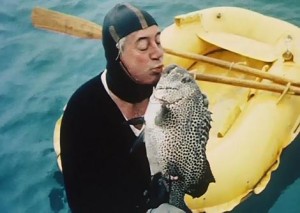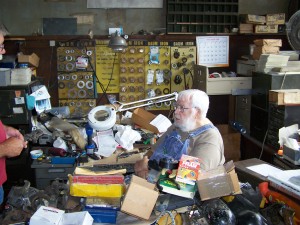In April, after serving two years as an appointed member of the Rockridge School Board, I ran for a full term spot and finished dead last among the competitors for the seat. I have a feeling the result was related to my outspoken advocacy for a Education Fund Referendum for the district. At my last meeting before leaving the board I had an opportunity to talk about my time as a board member and what I think I did wrong, or right. Here is what I said.
Ever since Nixon’s famous “you won’t have Nixon to kick around anymore” speech it has been the prerogative of people who lose elections to make it worse by saying something about the results and what they mean. I’ll try not to do that.
Since this is likely my last board meeting I wonder if you would indulge me, for just a couple of minutes to tell you something about what being on this board has meant to me and what I learned.
I would like to start by saying what a pleasure it was to discover, when I got on this board, that these folks up here were not a bunch of malevolent ogres, but in fact a group of good people who stepped up to do a job nobody else wanted to do, for no pay, in their free time, and who are doing their best with really bad options. I have learned a lot from them and they have been universally generous and helpful to me as I tried to learn the mountain of information required to be a really good and useful board member as Thomas the Tank Engine would say.
I lost this recent election pretty badly and I‘m afraid that it wasn’t for lack of “getting my message across” as losing candidates usually say, but very likely because I did get it across. I said what I thought and a lot of voters did not agree. That, of course, is their prerogative. I have been told by a number of friends since the election that it was a mistake to advocate an Education Fund referendum. School tax referenda are the only opportunity most people get to “vote against taxes” and if you look at the data on school referenda it is clear that they frequently take advantage of that opportunity. But I could not duck this question. I felt I had to make my position clear. Because working for an Ed Fund referendum was where I got started in this process three years ago and I still believe it is a sadly necessary step given the state of Illinois today.
It is hard to explain, in a few words in the newspaper, the complexity of the problems handed down to districts like ours from Springfield. It has taken me a full two years of study to put the picture together in my head and it is still a blurry picture.
Illinois – A Tale of Two Districts
Education in Illinois today is a story of haves and have nots. Rich suburban districts like Northfield H.S.D. 225 are buying their students laptop computers. Their state of the art schools offer classes like architecture, ceramics, photography, astronomy, forensic science, meteorology, and seven (yes, seven) foreign languages. At Glenbrook High School you can participate in debate team, contribute your writing to the literary magazine, take courses in radio and TV broadcasting (yes, they have their own radio station, WGBK), and compete on the swim team. The Northfield District spends $21,577 per student on operations. Virtually all of their funding is from local property taxes and you will be further discouraged when I tell you that their total tax rates are lower than ours.
Contrast that with Beardstown C.U.S.D. 15, a poor semi-rural district along the Illinois River. Beardstown currently spends $8464 per student on operations and $5300 on instruction. 76% of their funding comes from the State. I don’t need to tell you; they do not have their own radio station.
Sometimes you hear people say that money can’t buy education results. When I look at the funding and performance of Illinois schools, however (which any of you can do on the Illinois State Board of Education website) one quickly sees that money not only makes a difference, it makes a big difference. Northfield pays their teachers $101,000. 80% of those teachers have a masters degree. Beardstown pays their teachers $43,000. Given these options where do you suppose the best teachers in Illinois go?
In every parameter analyzed by the ISBE Report Card Northfield trounces Beardstown: Graduation Rate – 96% vs. 84%, PSAE scores – 85% vs. 31%, Readiness for college classes – 83% vs. 13%.
Rockridge?
What about Rockridge? The Rockridge District has a 19% higher median household income than the State, 41% higher than Rock Island County as a whole. Yet our district has no frills. We are not handing out laptops. We do not have a pool. Our buildings are old, our textbooks tend to be old, and we have grade schools which lack a full time principal on site. Right now our performance metrics are not bad. Our graduation rate is 96%. Our PSAE ranking is 62%, well above Beardstown, but far behind Northfield. Our readiness for college numbers stand at 45%, almost exactly at the state average. So far so good.
The Illinois Constitution says “The State has the primary responsibility for financing the system of public education.” Illinois, quite obviously, has not met this obligation. The state aid foundation number, $6119 has not changed since FY 2010. Costs, of course, continue to rise. Furthermore Illinois has not even fully funded its foundation obligations for the last several years. In FY 2013 payments to districts stood at 89% of the amount owed in the formula. In simple English this means that those rich districts like Northfield fully fund (some would say extravagantly) their schools from local taxes while poor districts in Illinois have lost even that pittance from the state which kept them afloat.
Rockridge was one of the losers. From 2009 to 2014 Rockridge’s general state aid went from about $2.7 million to $1.2 million annually. That is $1.5 million dollars gone missing from our budget – every year. What can we do?
The fundamental nature of budgets does not change just because Illinois fails to meet its obligation. You must cut spending or increase revenue. The board has done a great deal of the former. I sat up on the stage in the auditorium at a recent meeting and listened as students, teachers, and members of our community (people I respect a great deal) spoke earnestly about the value of music education and the quality of our program here at Rockridge. And I believed every word they said. And I wanted to get up and walk down into the audience and join them. And then I voted to make the program cut. Because we had to.
Whether we continue down that road, toward Beardstown, if you will, depends on how you view Rockridge today and what kind of community you aspire to have in the future. You might believe Rockridge is an extravagant district plagued by waste and overspending. I just don’t see that. But we can keep cutting. We can cut extra-curriculars and athletics, we can cut more of those people, like teacher’s aides and secretaries, whose daily interactions with our children shape their educational experience, and of course, we can cut teachers. We can become Beardstown with all that that entails.
I think I can safely say that we are not going to be Northfield but I think it is within our capacity as a community to keep being Rockridge. That is why I worked to get Rockridge Forward passed. That is why I supported the 1% sales tax. And that is why I said what I said during the campaign. My approach was unsuccessful, obviously, but I still am not convinced it was wrong. Problems are never solved by sweeping them under the rug. The solution to these problems ultimately lies with the voters of Rockridge, and Rock Island County, and, of course, the State of Illinois.
I said in the paper that good schools are the best thing a community can spend money on. They are an investment in the future. They pay dividends even to those residents without kids in the school. Studies show that and I really believe it. You can look around at communities with bad schools. You don’t want to live there.
As I leave the board I am still optimistic that we can keep Rockridge Rockridge. It has been my great pleasure to work with this board and these fine administrators and our wonderful staff. This place is as good as it is because every day these folks are doing more than they should have to with less than they need to do it. We, as parents, are lucky to have them.
by Dustin Joy




